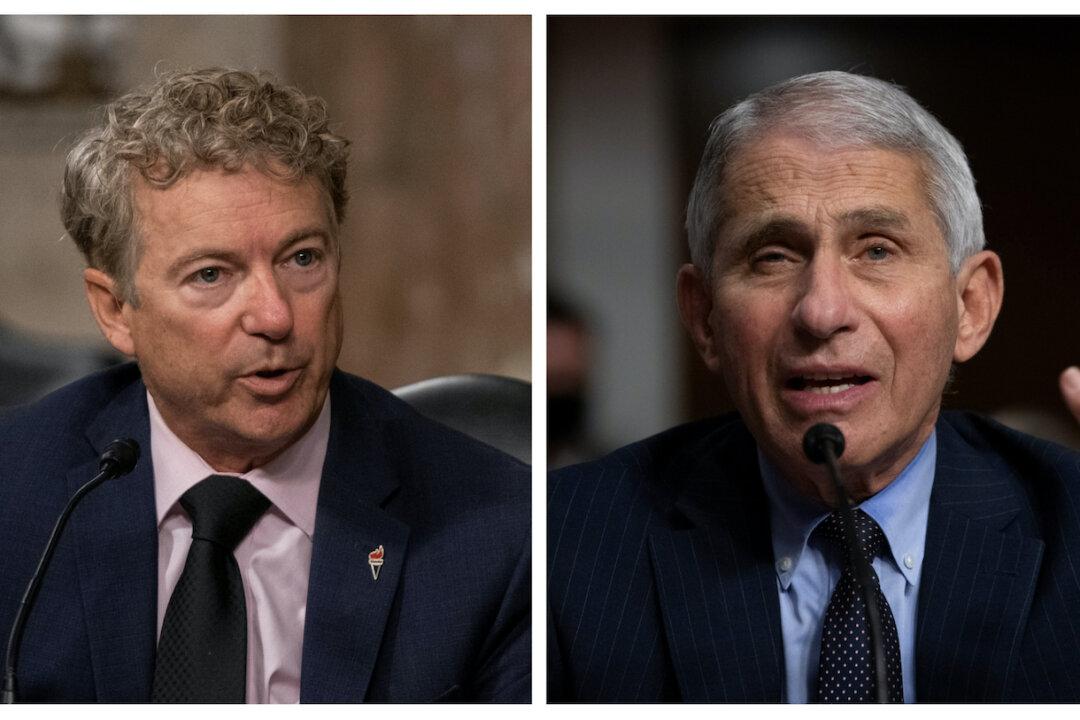Dr. Anthony Fauci, the head of the National Institute of Allergy and Infectious Diseases (NIAID), said his agency did not provide funds into research on risky “gain of function” research into coronaviruses at the Wuhan Institute of Virology.
During a Senate hearing, Sen. Rand Paul (R-Ky.) asked Fauci—who has become one of the public faces of the federal government’s pandemic response—about reports alleging that a U.S. virologist worked at the Wuhan, China, lab that would make pathogens more deadly or more easily transmittable. It comes amid questions about the origins of the CCP (Chinese Communist Party) virus and the theory that it may have leaked from the facility.





